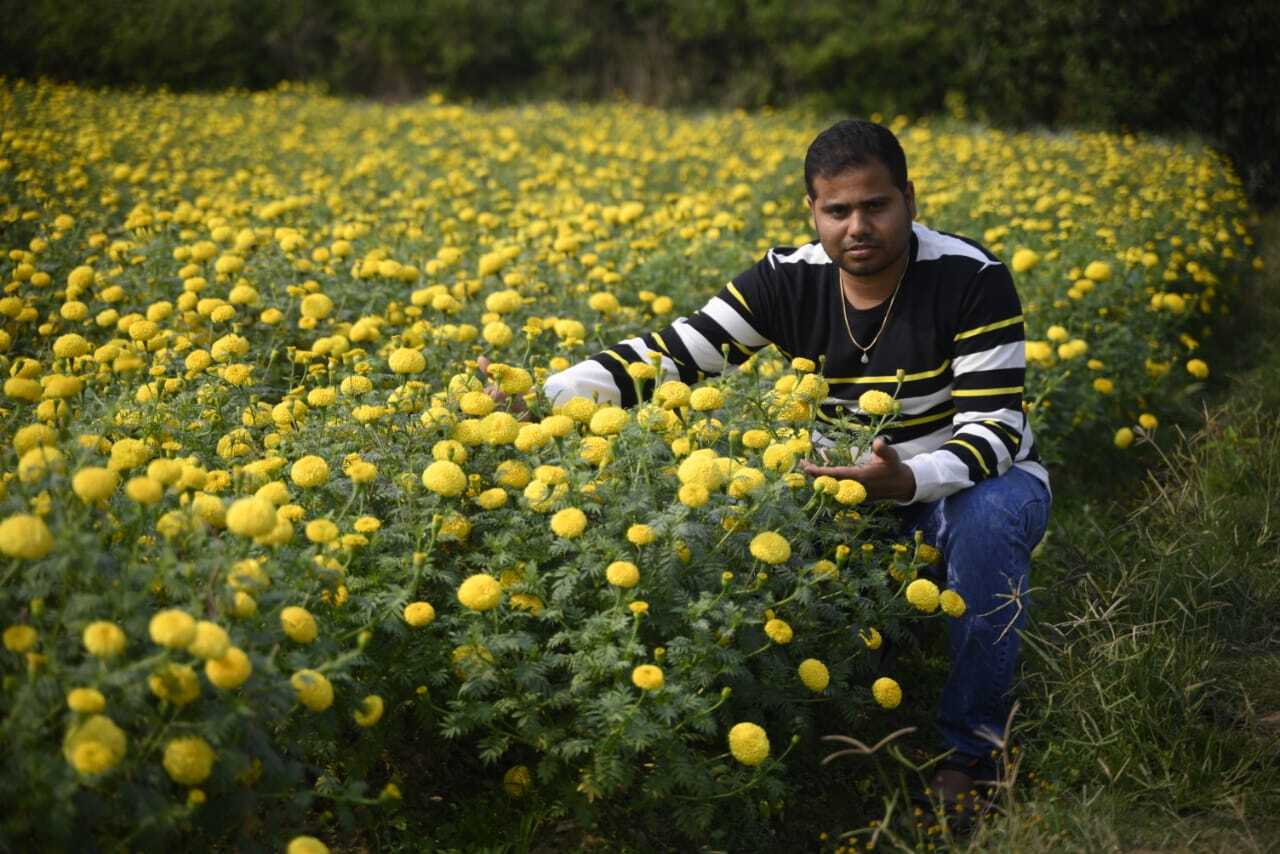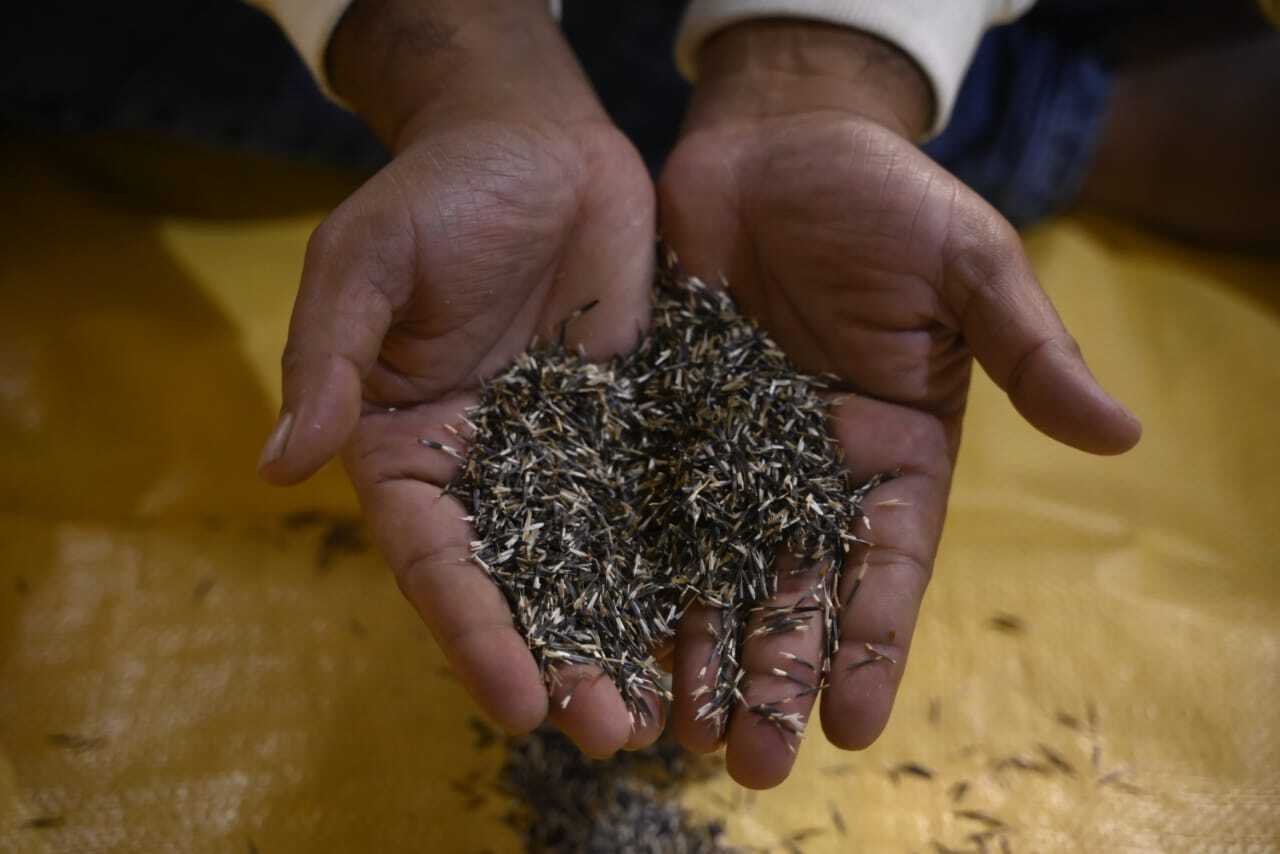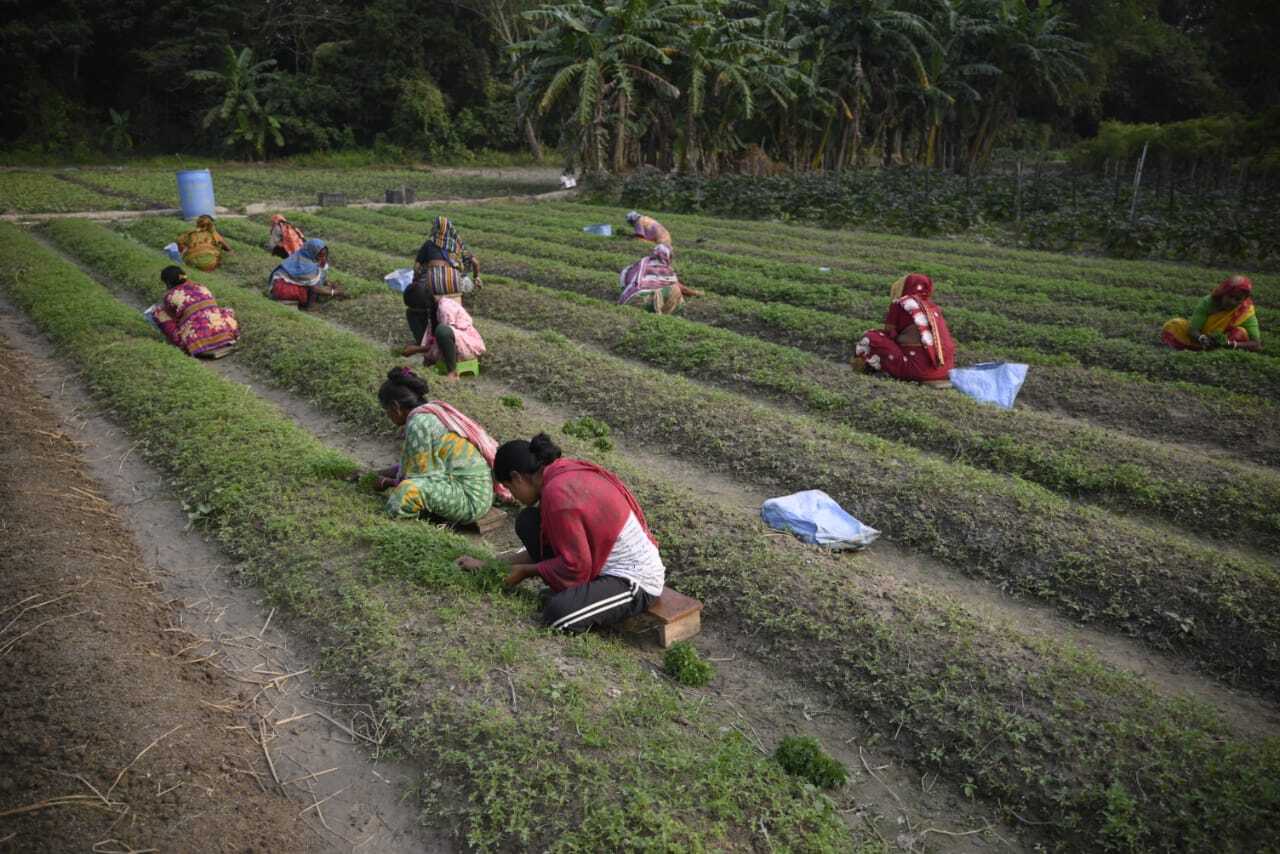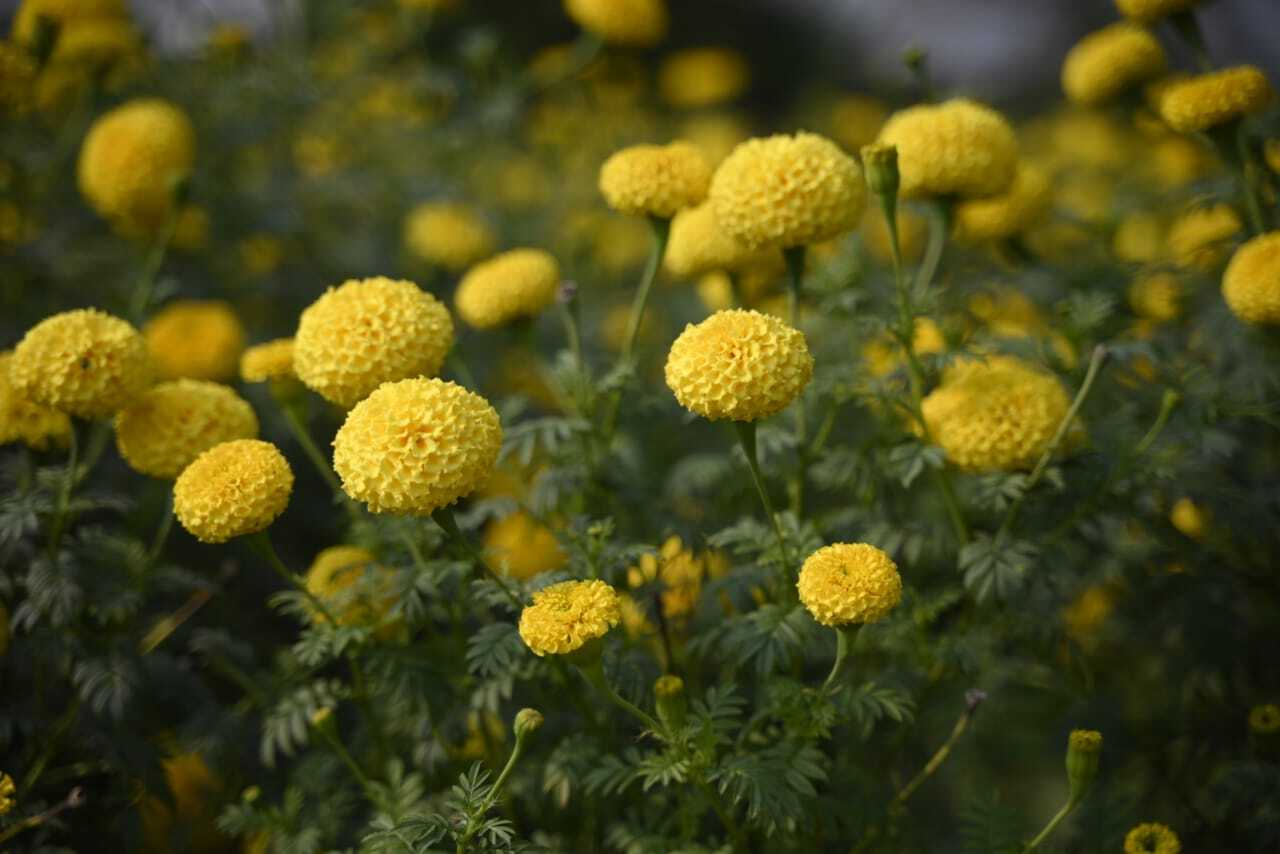In a quiet corner of West Bengal’s East Midnapore district, Kolaghat blooms with life every morning. Its flower market, filled with the bright yellows of marigolds and the soft pinks of roses, buzzes with gentle energy. Amid this colourful bustle, young Arup Kumar Ghosh grew up, finding inspiration in the beauty and rhythm of the trade that connects flowers to homes across India.
In 2010, Arup dropped out of college after completing just one year of his commerce degree and began interacting with local flower vendors to study the market. His keen interest in flowers led him to Hyderabad in 2011, where he worked at one of the flower shops in the Gudimalkapur Flower Market. “My job involved assisting in the sale of flowers like marigold strings and tube roses,” says the 33-year-old.
“I was earning a sum of Rs 3500 per month while working long hours from 6 am to 4 pm. During my time there, I learned that flowers from Kolaghat were being sent to the Hyderabad flower market. This made me realise that I could return to my hometown and start my venture in this growing industry,” he tells The Better India.

He began his journey with a modest venture, buying vibrant marigold strings from the bustling Flower Market Kolaghat. Each string, purchased at Rs 120, would later be sold for Rs140-150 in local markets. The bright orange and yellow garlands, symbols of celebration and devotion, quickly found eager buyers. With every 100 strings, he earned a tidy profit of Rs 2,000 to Rs 3,000—a small but encouraging reward for his hard work.
As months passed and his confidence grew, he envisioned something bigger. Instead of simply trading flowers, he decided to cultivate them himself. This bold step marked the beginning of his farming journey, bringing him closer to the source of the blooms that had sparked his passion.
The first step into business
In late 2011, Arup Kumar Ghosh took his first bold step into floriculture by leasing a two-bhiga plot of land to experiment with marigold farming. Keeping his investment modest, he spent around Rs 12,000 to lease the land, purchase saplings, and manage transportation costs.
“Initially, I bought local marigold saplings from the Kolaghat market, but the flowers that grew were small and of poor quality. They didn’t meet the market’s standards and I was earning losses,” he admits.
Determined not to give up, the entrepreneur visited Thailand to learn about high-quality marigold varieties. He spent six months at the Bangkok Blossom Market, undergoing training that changed his approach to farming. “I learnt about a high-quality flower called the Tennis Ball marigold variety. This is prized for its bright, round flowers and its ability to withstand long-distance shipping without being damaged,” says the 33-year-old farmer.

Arup brought back 25 grams of seeds from the yellow and orange Tennis Ball marigold variety and began cultivating marigolds on the two bigha land he had leased. He also applied the knowledge he gained during his training to produce his own seeds and saplings from the crops he grew.
“The flowers were of better quality, and I could ship them to different cities like Gujarat, Hyderabad, Lucknow, Kanpur, Delhi, Ayodhya, Allahabad, and Rajasthan. The market responded positively, and soon, farmers from across India began approaching me for seeds and saplings,” he says.
“In the early stages of farming, I had to experiment with different fertilisers and treatments to find what worked best. It was all trial and error,” he recalls. “But gradually, the results began to show. The flowers flourished, and the demand for them grew too.”
From a small-time flower trader to a full-fledged entrepreneur
By 2012, the budding farmer was able to harvest his first successful crop of high-quality marigold flowers. He sold them for Rs 100 per kilogram in the Kolaghat market, and local farmers soon began approaching him for his plants. This marked the turning point in his journey, allowing him to grow from a small-time flower trader into a full-fledged entrepreneur. “I expanded my cultivation to six bighas, where I produced both seeds and saplings of the Tennis Ball marigold variety,” he explains.
“Marigolds are in demand throughout the year, not just seasonally. Once I got the right variety, I realised that the potential for profit was huge. It turned it into a full-time business by selling flowers, seeds, and saplings,” says the entrepreneur.

“My seeds and saplings are also in high demand across India,” he says with pride. “I’ve helped farmers who once grew crops like wheat and paddy transition to marigold farming, and they’ve experienced the benefits for themselves.”
To increase his sales, the 33-year-old entrepreneur relies heavily on social media platforms like Facebook and Instagram. “Back when I started, social media wasn’t as advanced. Now, it’s so easy to connect with customers and farmers across the country. I use social media platforms to showcase my farm and sell my products,” he says.
Fighting challenges and learning from experience
As the first person in his family to experiment with flower farming, Arup encountered several challenges while cultivating marigolds on his land. One of the primary concerns was managing water, particularly during the monsoon season, as excess water could damage the crops. “The key is ensuring the fields don’t retain too much water, especially during the monsoon,” he explains. “I have to ensure the drainage system is effective, so the water doesn’t stagnate and harm the plants.”
In addition to managing water, he also had to ensure his crops received sufficient sunlight. “Marigolds need plenty of sunlight, so I make sure the land is not overshadowed by tall trees or other obstacles,” he adds. Moreover, the unpredictable weather conditions, including storms and floods, were a constant threat to his crops, and he had to take precautions to protect them. “I cover the field with a net so they can grow well during harsh weather conditions,” he explains.

Pests were a major challenge, but the farmer tackled it with determination and natural solutions. “Instead of relying on harmful chemicals, I use neem oil, bone dust, and cow dung manure,” Arup says. “These methods are gentle on the plants and the environment, helping keep pests in check without harming the crops.”
Another challenge was training workers to manage the expanding business. “Teaching the right way to grow marigolds took time,” he explains. “I would train 10 workers at a time, and they would share the knowledge with others, ensuring the skills spread and the business grew stronger.”
In 2024, he sold approximately 4 crore saplings
Today, Arup’s farm spans 73 bighas (approximately 29.2 acres), where he cultivates various marigold varieties, including orange, yellow, and red. “I have noticed the orange variety has the highest demand outside Kolkata,” he says.
In 2024, he sold approximately 4 crore saplings and 1500 kg of marigold seeds. The seeds, priced at Rs 25,000 per kg, are a key revenue stream, and demand for them stretches across India, with farmers from states like Gujarat, Madhya Pradesh, Rajasthan, and Uttar Pradesh.

His marigold flowers also contribute significantly to his earnings. “During the peak harvest months, my farm yields between 800 and 1000 kg of marigold flowers daily, which are sold to wholesale markets in Hyderabad, Kolaghat, and Howrah,” he says. “The flowers alone generate Rs 1-2 crore during the 3-5 months of harvesting.”
Dilip Bhowmick, a flower wholesaler in Kolaghat, says, “I’ve been sourcing marigold flowers and saplings from Arup for the past couple of years, and I am very satisfied with the quality. The flowers are consistently fresh, vibrant, and big, which sets them apart from others in the market. He takes great care in growing and nurturing them, and that’s why I continue to rely on him.”
Today, Arup’s farm generates an impressive annual revenue between Rs 6.35 crore and Rs 7.35 crore, with an average monthly income of around Rs 50 lakh. “It’s a large operation now, with 80 workers supporting planting, harvesting, and maintaining the farm,” he shares proudly.
Looking back, Arup reflects, “I could have easily stayed in the shop, but taking the leap into entrepreneurship and farming has deepened my understanding of floriculture. The success of my farm fills me with pride, and I hope my journey inspires others who dream of building a career in this field.”
Edited by Leila Badyari; All pictures courtesy Arup Kumar Ghosh
No comments:
Post a Comment